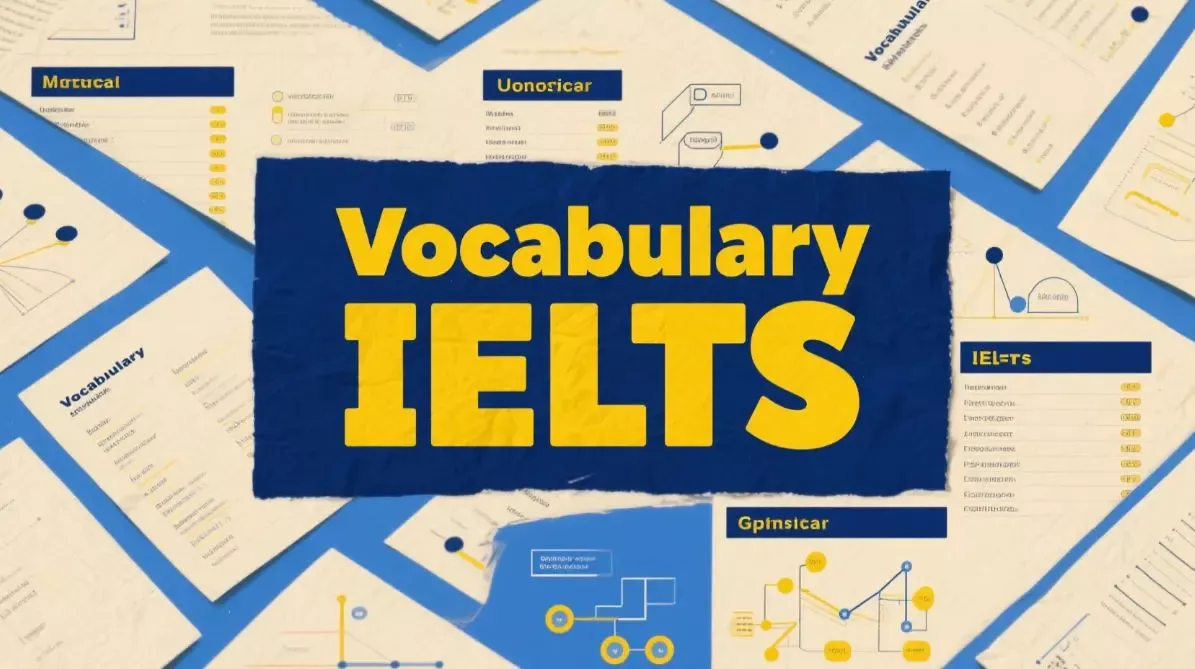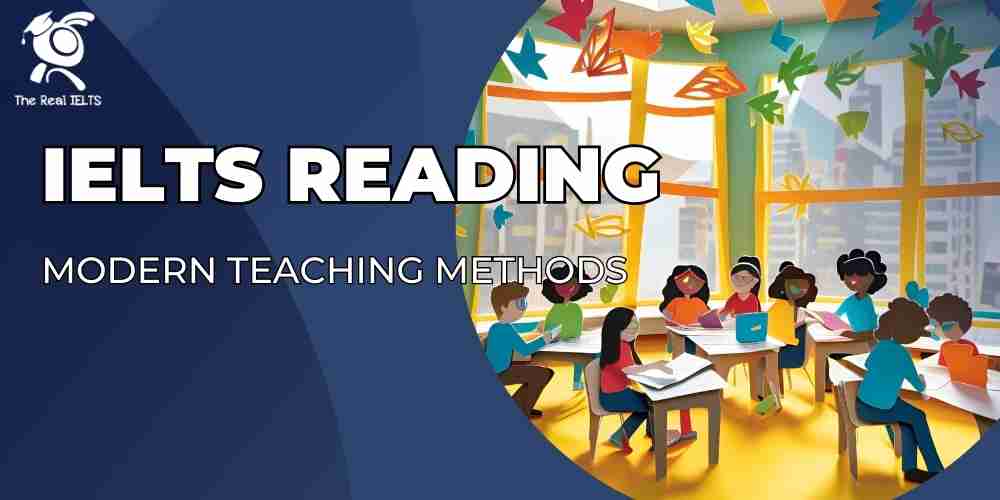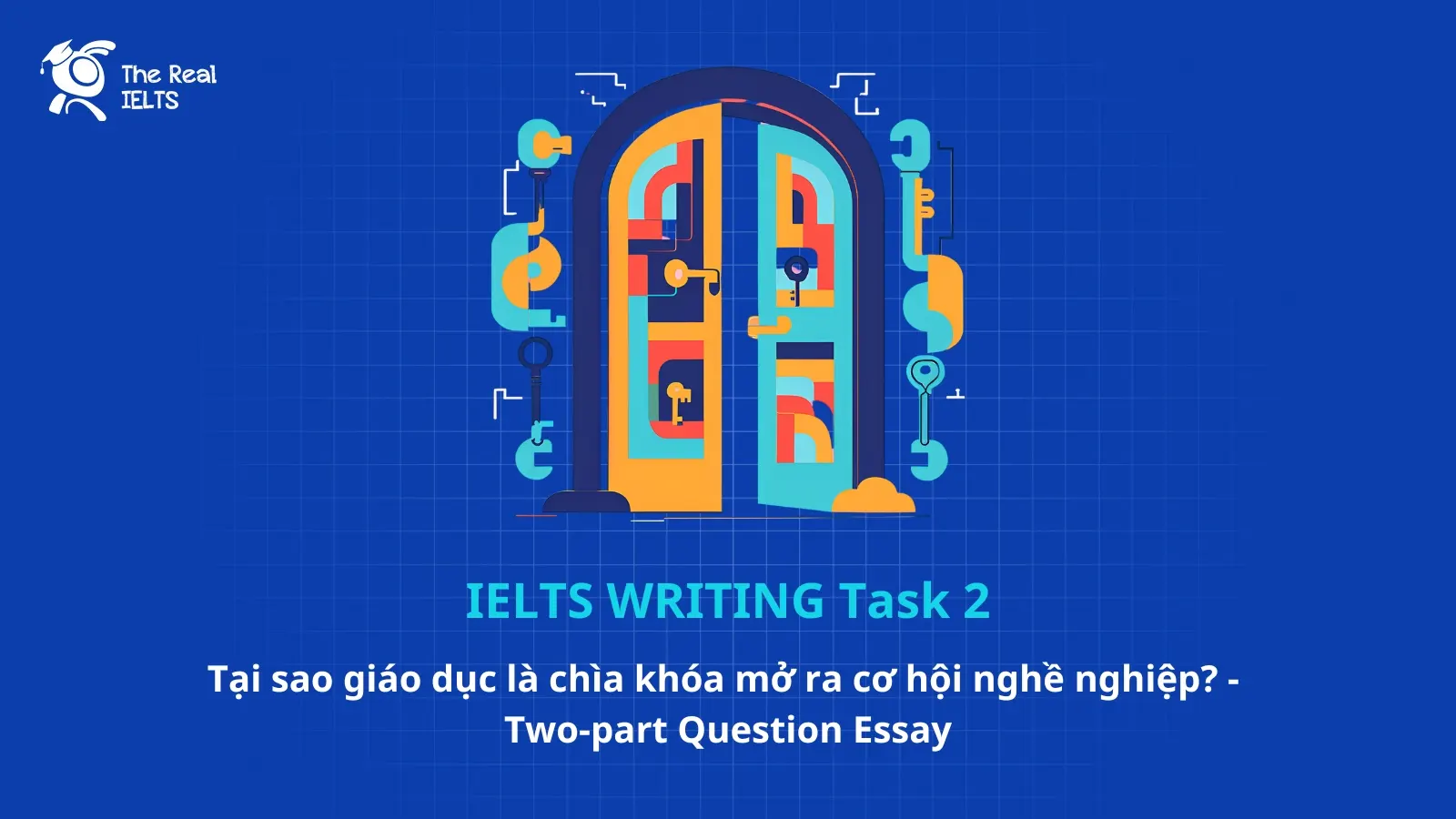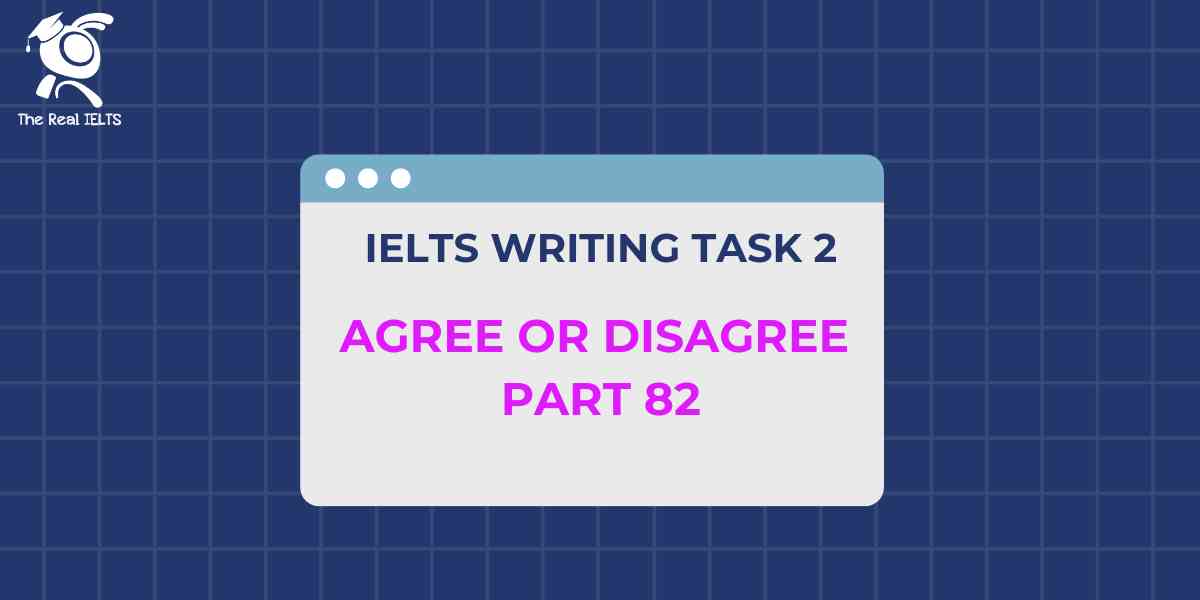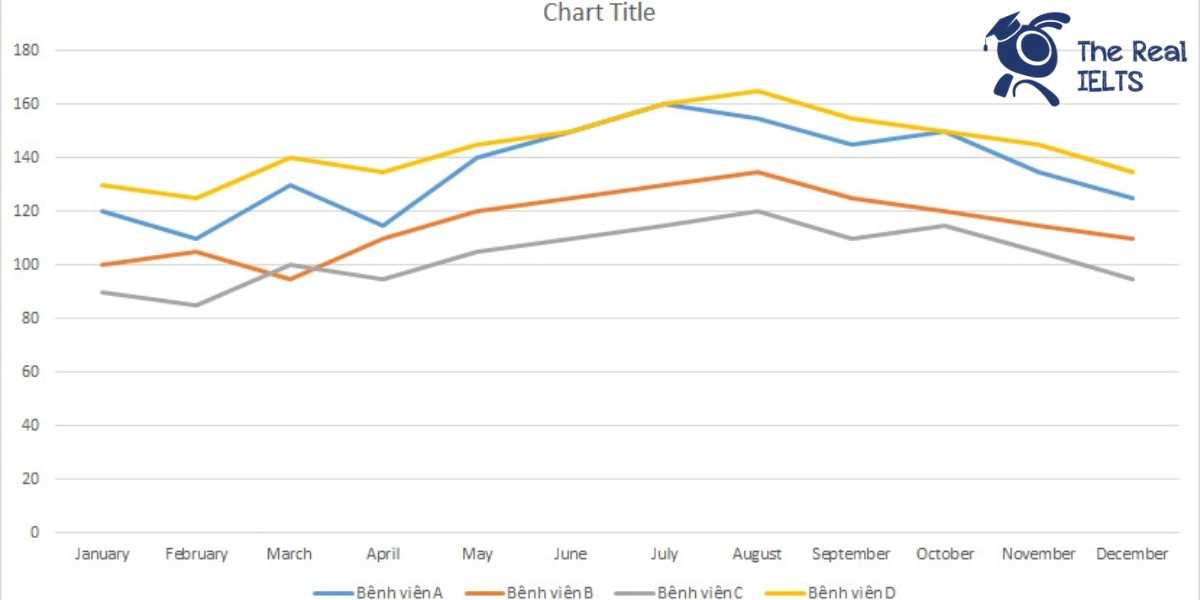Trong các kỹ năng được đánh giá trong kỳ thi IELTS, kỹ năng viết luôn là thách thức lớn với nhiều thí sinh, đặc biệt là ở phần IELTS Writing Task 2 Phần 41, nơi yêu cầu khả năng lập luận logic, tư duy phản biện và sử dụng ngôn ngữ học thuật chính xác. Việc nắm vững cấu trúc bài viết, kết hợp chiến lược triển khai ý hiệu quả không chỉ giúp nâng cao điểm số mà còn phản ánh năng lực sử dụng tiếng Anh trong môi trường học thuật và chuyên nghiệp.
Đọc thêm: IELTS Writing Task 2 Phần 40.
Đề 1 IELTS Writing Task 2
Some people believe that the development of artificial intelligence (AI) will bring more benefits to society, while others argue that it poses significant risks. Discuss both views and give your own opinion.
Bài essay (Band 6.5)
The rapid development of artificial intelligence (AI) has sparked debate about its impact on society. Some believe AI offers substantial benefits, while others warn of its potential dangers. This essay will discuss both perspectives and provide my own view.
On the one hand, AI brings numerous advantages to society. Firstly, it improves efficiency in various sectors. For example, AI-powered systems in healthcare can diagnose diseases faster than humans, saving lives. Secondly, AI enhances convenience in daily life. Virtual assistants like Siri help people manage tasks efficiently. Therefore, AI is considered a transformative technology that can improve living standards.
On the other hand, AI poses serious risks. One major concern is job displacement. Automation may replace workers in industries like manufacturing, leading to unemployment. Additionally, AI systems could be misused, such as in creating deepfake videos, which can spread misinformation. Thus, the development of AI may have negative consequences if not regulated properly.
In my opinion, the benefits of AI outweigh the risks, provided there are strict regulations. Governments should ensure AI is used ethically to minimize harm, such as protecting jobs and preventing misuse. In conclusion, while AI has potential dangers, its advantages in improving efficiency and convenience make it a valuable tool for society when managed responsibly.
Chấm điểm (4 tiêu chí)
Task Response: 6.5
The essay addresses both views and provides a clear opinion, meeting the task requirements. However, arguments are somewhat general, and examples (e.g., “Siri”) lack detailed development. To reach Band 7, more specific examples and deeper analysis are needed.
Coherence and Cohesion: 6.5
The essay is logically organized with clear paragraphs and linking words (e.g., “Firstly,” “Therefore”). Transitions are sometimes basic, and cohesive devices are slightly repetitive. Using varied connectors like “In contrast” or “Consequently” would improve the score.
Lexical Resource: 6.5
The vocabulary is appropriate, with some academic phrases (e.g., “numerous advantages,” “transformative technology”). Word choice is occasionally repetitive, and more precise or varied terms could elevate the score to Band 7.
Grammatical Range and Accuracy: 6.5
The essay uses a mix of simple and complex sentences with mostly accurate grammar. Minor errors (e.g., “may have negative consequences” could be clearer) and limited use of advanced structures prevent a higher score. More diverse sentence types would enhance the score.
Phân tích từ vựng
- numerous advantages
- Nghĩa: Nhiều lợi ích.
- Giải thích: Cụm này mang tính học thuật, dùng để nhấn mạnh số lượng lợi ích lớn. Trong bài, nó được dùng đúng nhưng khá phổ biến. Có thể thay bằng “countless benefits” để tăng tính đa dạng.
- efficiency in various sectors
- Nghĩa: Hiệu quả trong nhiều lĩnh vực.
- Giải thích: Cụm này phù hợp để mô tả tác động tích cực của AI trong các ngành. Trong bài, nó được dùng đúng nhưng nên kết hợp với “productivity across industries” để tránh lặp từ.
- convenience in daily life
- Nghĩa: Sự tiện lợi trong cuộc sống hàng ngày.
- Giải thích: Cụm này nhấn mạnh lợi ích thiết thực của AI. Trong bài, nó được dùng đúng nhưng hơi thông dụng. Có thể thay bằng “practicality in everyday tasks” để đạt Band 7.
- transformative technology
- Nghĩa: Công nghệ đột phá.
- Giải thích: Cụm này mang tính học thuật, dùng để chỉ công nghệ có khả năng thay đổi lớn. Trong bài, nó phù hợp nhưng có thể thay bằng “revolutionary innovation” để tăng tính học thuật.
- serious risks
- Nghĩa: Rủi ro nghiêm trọng.
- Giải thích: Cụm này dùng để nhấn mạnh các vấn đề lớn do AI gây ra. Trong bài, nó được dùng đúng nhưng nên kết hợp với “significant threats” để đa dạng hóa.
- job displacement
- Nghĩa: Thất nghiệp do thay thế công việc.
- Giải thích: Cụm này mang tính học thuật, dùng để chỉ tác động tiêu cực của tự động hóa. Trong bài, nó được dùng đúng nhưng có thể thay bằng “employment disruption” để tăng tính phong phú.
Phân tích ngữ pháp
- complex sentences (e.g., “For example, AI-powered systems in healthcare can diagnose diseases faster than humans, saving lives.”)
- Giải thích: Câu phức được dùng đúng, kết hợp mệnh đề chính và phụ để giải thích ví dụ. Tuy nhiên, bài viết cần thêm các cấu trúc phức tạp hơn như “not only… but also…” để đạt Band 7.
- modal verbs (e.g., “could be misused”)
- Giải thích: Động từ khuyết thiếu “could” được dùng đúng để diễn tả khả năng. Tuy nhiên, bài viết chỉ dùng “could” và “may,” thiếu các động từ như “might” hoặc “should,” làm giảm tính linh hoạt.
- conditional sentences (e.g., “if not regulated properly”)
- Giải thích: Câu điều kiện được dùng đúng để diễn tả hậu quả nếu không có hành động phù hợp. Tuy nhiên, bài viết chỉ dùng điều kiện loại 1 đơn giản, thiếu các cấu trúc như điều kiện loại 2 hoặc 3, làm hạn chế sự đa dạng.
- minor error (e.g., “may have negative consequences” could be “could result in adverse outcomes”)
- Giải thích: Câu này đúng ngữ pháp nhưng diễn đạt chưa đủ học thuật và rõ ràng. “Negative consequences” hơi thông dụng. Để đạt Band 7, cần dùng cụm trang trọng hơn và tránh lỗi nhỏ như thế này.
Tổng kết & gợi ý cải thiện
Tổng kết: Bài viết đạt Band 6.5 nhờ cấu trúc rõ ràng, lập luận cơ bản, và từ vựng phù hợp. Tuy nhiên, các ý chưa được phát triển sâu, từ vựng và ngữ pháp thiếu đa dạng, và có một số lỗi nhỏ. (Một số nhận xét mang tính ước lượng vì không thể mô phỏng chính xác chấm điểm như người thật.)
Gợi ý cải thiện để đạt Band 7:
- Phát triển ý sâu hơn: Thêm ví dụ cụ thể (e.g., một ứng dụng AI cụ thể trong y tế) và phân tích chi tiết hơn về lợi ích hoặc rủi ro.
- Đa dạng từ vựng: Sử dụng từ đồng nghĩa (e.g., thay “serious” bằng “grave”) và cụm học thuật nâng cao hơn.
- Tăng cấu trúc ngữ pháp: Dùng các cấu trúc như câu điều kiện loại 2/3, bị động phức tạp, hoặc so sánh nâng cao để thể hiện sự linh hoạt.
- Cải thiện liên kết: Sử dụng các từ nối như “On the contrary” hoặc “As a result” để chuyển ý mượt mà hơn.
Bằng cách tập trung vào những điểm này, bài viết có thể đạt Band 7 hoặc cao hơn.
Đề 2 IELTS Writing Task 2
Some people believe that working from home is more beneficial for employees and employers, while others think it reduces productivity and social interaction. Discuss both views and give your own opinion.
Bài essay (Band 6.5)
In recent years, working from home has gained popularity due to technological advancements. Some argue that it benefits both employees and employers, while others believe it harms productivity and social connections. This essay will discuss both perspectives and present my own view.
On the one hand, working from home offers significant advantages. Firstly, it provides employees with greater flexibility in managing their schedules, which can improve work-life balance. For example, workers can avoid long commutes, saving time and money. Secondly, employers benefit from reduced costs, as they need less office space and utilities. Therefore, remote work is seen as a practical solution for modern workplaces.
On the other hand, working from home has notable drawbacks. One major issue is that it may lower productivity. Without direct supervision, some employees might procrastinate or become distracted by household tasks. Additionally, remote work can limit social interaction, as workers miss out on face-to-face collaboration with colleagues. For instance, team brainstorming sessions are often less effective online. Thus, working from home can negatively affect workplace dynamics.
In my opinion, the benefits of working from home outweigh the disadvantages if managed properly. Employers should provide clear guidelines to maintain productivity, and employees can schedule virtual meetings to stay connected. In conclusion, while working from home has some challenges, its advantages in flexibility and cost savings make it a valuable option for both employees and employers.
Chấm điểm (4 tiêu chí)
Task Response: 6.5
The essay addresses both views and provides a clear opinion, fulfilling the task requirements. However, arguments are somewhat general, and examples (e.g., “long commutes”) lack depth. To reach Band 7, more specific examples and detailed analysis are needed.
Coherence and Cohesion: 6.5
The essay is logically organized with clear paragraphs and basic linking words (e.g., “Firstly,” “Therefore”). Transitions are occasionally abrupt, and cohesive devices are slightly repetitive. Using varied connectors like “Conversely” or “As a result” would improve the score.
Lexical Resource: 6.5
The vocabulary is appropriate, with some academic phrases (e.g., “significant advantages,” “reduced costs”). Word choice is sometimes repetitive, and more precise or varied terms could elevate the score to Band 7.
Grammatical Range and Accuracy: 6.5
The essay uses a mix of simple and complex sentences with mostly accurate grammar. Minor errors (e.g., “can negatively affect” could be clearer) and limited use of advanced structures prevent a higher score. More diverse sentence types would enhance the score.
Phân tích từ vựng
- significant advantages
- Nghĩa: Lợi ích đáng kể.
- Giải thích: Cụm này mang tính học thuật, dùng để nhấn mạnh tầm quan trọng của lợi ích. Trong bài, nó được dùng đúng nhưng khá phổ biến. Có thể thay bằng “substantial benefits” để tăng tính đa dạng.
- greater flexibility
- Nghĩa: Tính linh hoạt cao hơn.
- Giải thích: Cụm này phổ biến trong văn học thuật, thể hiện sự tự do trong quản lý công việc. Trong bài, nó phù hợp nhưng nên kết hợp với “enhanced adaptability” để tránh lặp từ.
- reduced costs
- Nghĩa: Giảm chi phí.
- Giải thích: Cụm này nhấn mạnh lợi ích tài chính, phù hợp với ngữ cảnh làm việc từ xa. Trong bài, nó được dùng đúng nhưng hơi thông dụng. Có thể thay bằng “lowered expenses” để đạt Band 7.
- practical solution
- Nghĩa: Giải pháp thực tế.
- Giải thích: Cụm này dùng để chỉ tính khả thi của làm việc từ xa. Tuy nhiên, nó khá phổ biến và có thể thay bằng “feasible approach” để tăng tính học thuật.
- lower productivity
- Nghĩa: Giảm năng suất.
- Giải thích: Cụm này phù hợp để mô tả tác động tiêu cực của làm việc từ xa. Trong bài, nó được dùng đúng nhưng nên kết hợp với “diminished efficiency” để đa dạng hóa.
- social interaction
- Nghĩa: Tương tác xã hội.
- Giải thích: Cụm này mang tính học thuật, dùng để chỉ các mối quan hệ tại nơi làm việc. Trong bài, nó được dùng đúng nhưng có thể thay bằng “interpersonal engagement” để tăng tính phong phú.
Phân tích ngữ pháp
- complex sentences (e.g., “For example, workers can avoid long commutes, saving time and money.”)
- Giải thích: Câu phức được dùng đúng, kết hợp mệnh đề chính và phụ để giải thích ví dụ. Tuy nhiên, bài viết cần thêm các cấu trúc phức tạp hơn như “not only… but also…” để đạt Band 7.
- conditional sentences (e.g., “if managed properly”)
- Giải thích: Câu điều kiện được dùng đúng để diễn tả kết quả nếu có hành động phù hợp. Tuy nhiên, bài viết chỉ dùng điều kiện loại 1 đơn giản, thiếu các cấu trúc như điều kiện loại 2 hoặc 3, làm hạn chế sự đa dạng.
- modal verbs (e.g., “might procrastinate”)
- Giải thích: Động từ khuyết thiếu “might” được dùng đúng để diễn tả khả năng. Tuy nhiên, bài viết chỉ dùng “might” và “can,” thiếu các động từ như “could” hoặc “should,” làm giảm tính linh hoạt.
- minor error (e.g., “can negatively affect workplace dynamics” could be “may adversely impact workplace collaboration”)
- Giải thích: Câu này đúng ngữ pháp nhưng diễn đạt chưa đủ học thuật và rõ ràng. “Negatively affect” hơi thông dụng. Để đạt Band 7, cần dùng cụm trang trọng hơn và tránh lỗi nhỏ như thế này.
Tổng kết & gợi ý cải thiện
Tổng kết: Bài viết đạt Band 6.5 nhờ cấu trúc rõ ràng, lập luận cơ bản, và từ vựng phù hợp. Tuy nhiên, các ý chưa được phát triển sâu, từ vựng và ngữ pháp thiếu đa dạng, và có một số lỗi nhỏ. (Một số nhận xét mang tính ước lượng vì không thể mô phỏng chính xác chấm điểm như người thật.)
Gợi ý cải thiện để đạt Band 7:
- Phát triển ý sâu hơn: Thêm ví dụ cụ thể (e.g., một công ty áp dụng làm việc từ xa thành công) và phân tích chi tiết hơn về lợi ích hoặc hạn chế.
- Đa dạng từ vựng: Sử dụng từ đồng nghĩa (e.g., thay “practical” bằng “viable”) và cụm học thuật nâng cao hơn.
- Tăng cấu trúc ngữ pháp: Dùng các cấu trúc như câu điều kiện loại 2/3, bị động phức tạp, hoặc so sánh nâng cao để thể hiện sự linh hoạt.
- Cải thiện liên kết: Sử dụng các từ nối như “On the contrary” hoặc “Consequently” để chuyển ý mượt mà hơn.
Bằng cách tập trung vào những điểm này, bài viết có thể đạt Band 7 hoặc cao hơn.
Đề 3 IELTS Writing Task 3
Some people believe that children should be taught practical life skills, such as cooking and financial management, at school. Others argue that schools should focus on academic subjects to prepare students for higher education. Discuss both views and give your own opinion.
Bài essay (Band 6.5)
The role of schools in preparing students for life has been widely debated. Some argue that teaching practical life skills, such as cooking and financial management, is essential, while others believe schools should prioritize academic subjects. This essay will discuss both perspectives and provide my own view.
On the one hand, teaching life skills at school has considerable benefits. Firstly, skills like cooking help students become independent individuals as they learn to take care of themselves. For example, knowing how to prepare healthy meals can improve their well-being. Secondly, financial management skills enable students to handle money wisely. Understanding budgeting can prevent debt problems in the future. Therefore, life skills are seen as a crucial part of education.
On the other hand, focusing on academic subjects is important for students’ future. Subjects like math and science provide the necessary knowledge for higher education and careers. For instance, strong academic performance is often required for university admissions. Additionally, academic subjects develop critical thinking, which is essential for problem-solving. Thus, prioritizing academics can have a long-term impact on students’ success.
In my opinion, schools should balance both approaches. While academic subjects are vital for higher education, life skills prepare students for daily challenges. Schools could offer short courses on practical skills alongside traditional subjects. In conclusion, although academic subjects are important, incorporating life skills into the curriculum would better equip students for life.
Đề 4 IELTS Writing Task 4
Chấm điểm (4 tiêu chí)
Task Response: 6.5
The essay addresses both views and provides a clear opinion, meeting the task requirements. However, the arguments are somewhat general, and examples (e.g., “budgeting”) lack detailed development. To reach Band 7, more specific examples and deeper analysis are needed.
Coherence and Cohesion: 6.5
The essay is well-organized with clear paragraphs and linking words (e.g., “Firstly,” “Therefore”). Transitions are sometimes basic, and cohesive devices are slightly repetitive. Using varied connectors like “By contrast” or “As a result” would improve the score.
Lexical Resource: 6.5
The vocabulary is appropriate, with some academic phrases (e.g., “considerable benefits,” “necessary knowledge”). Word choice is occasionally repetitive, and more precise or varied terms could push the score to Band 7.
Grammatical Range and Accuracy: 6.5
The essay uses a mix of simple and complex sentences with generally accurate grammar. Minor errors (e.g., “better equip students” could be clearer) and limited use of advanced structures prevent a higher score. More diverse sentence types would enhance the score.
Phân tích từ vựng
- considerable benefits
- Nghĩa: Lợi ích đáng kể.
- Giải thích: Cụm này mang tính học thuật, dùng để nhấn mạnh tầm quan trọng của một yếu tố. Trong bài, nó được dùng đúng để mô tả lợi ích của kỹ năng sống, nhưng có thể thay bằng “substantial advantages” để tăng tính đa dạng.
- independent individuals
- Nghĩa: Cá nhân độc lập.
- Giải thích: Cụm này phổ biến trong văn học thuật, thể hiện khả năng tự lập. Trong bài, nó phù hợp nhưng nên kết hợp với “self-reliant persons” để tránh lặp từ.
- handle money wisely
- Nghĩa: Quản lý tiền thông minh.
- Giải thích: Cụm này nhấn mạnh kỹ năng tài chính, phù hợp với ngữ cảnh giáo dục. Trong bài, nó được dùng đúng nhưng hơi thông dụng. Có thể thay bằng “manage finances prudently” để đạt Band 7.
- crucial part
- Nghĩa: Phần quan trọng.
- Giải thích: Cụm này dùng để nhấn mạnh tầm quan trọng của kỹ năng sống trong giáo dục. Tuy nhiên, nó khá phổ biến và có thể thay bằng “essential component” để tăng tính học thuật.
- necessary knowledge
- Nghĩa: Kiến thức cần thiết.
- Giải thích: Cụm này phù hợp để mô tả vai trò của các môn học thuật. Trong bài, nó được dùng đúng nhưng nên kết hợp với “essential expertise” để đa dạng hóa.
- long-term impact
- Nghĩa: Tác động lâu dài.
- Giải thích: Cụm này mang tính học thuật, dùng để chỉ hiệu quả bền vững của giáo dục học thuật. Trong bài, nó được dùng đúng nhưng có thể thay bằng “lasting effect” để tăng tính phong phú.
Phân tích ngữ pháp
- complex sentences (e.g., “For example, knowing how to prepare healthy meals can improve their well-being.”)
- Giải thích: Câu phức được dùng đúng, kết hợp mệnh đề chính và phụ để giải thích ví dụ. Tuy nhiên, bài viết cần thêm các cấu trúc phức tạp hơn như “not only… but also…” để đạt Band 7.
- modal verbs (e.g., “can prevent debt problems”)
- Giải thích: Động từ khuyết thiếu “can” được dùng đúng để diễn tả khả năng. Tuy nhiên, bài viết chỉ dùng “can” và thiếu các động từ như “could” hoặc “should,” làm giảm tính linh hoạt.
- relative clauses (e.g., “which is essential for problem-solving”)
- Giải thích: Mệnh đề quan hệ được dùng đúng để bổ sung thông tin về tư duy phản biện. Tuy nhiên, bài viết thiếu các mệnh đề quan hệ phức tạp hơn, như mệnh đề không xác định với “who” hoặc “whose,” để tăng tính học thuật.
- minor error (e.g., “better equip students” could be “more effectively prepare students”)
- Giải thích: Câu này đúng ngữ pháp nhưng diễn đạt chưa đủ chính xác và học thuật. “Equip” đúng nhưng không tối ưu trong ngữ cảnh này. Để đạt Band 7, cần diễn đạt rõ ràng và trang trọng hơn.
Tổng kết & gợi ý cải thiện
Tổng kết: Bài viết đạt Band 6.5 nhờ cấu trúc rõ ràng, lập luận cơ bản, và từ vựng phù hợp. Tuy nhiên, các ý chưa được phát triển sâu, từ vựng và ngữ pháp thiếu đa dạng, và có một số lỗi nhỏ. (Một số nhận xét mang tính ước lượng vì không thể mô phỏng chính xác chấm điểm như người thật.)
Gợi ý cải thiện để đạt Band 7:
- Phát triển ý sâu hơn: Thêm ví dụ cụ thể (e.g., một kỹ năng sống cụ thể như lập kế hoạch tài chính) và phân tích chi tiết hơn về lợi ích của cả hai phía.
- Đa dạng từ vựng: Sử dụng từ đồng nghĩa (e.g., thay “crucial” bằng “vital”) và cụm học thuật nâng cao hơn.
- Tăng cấu trúc ngữ pháp: Dùng các cấu trúc như câu điều kiện, mệnh đề quan hệ phức tạp, hoặc so sánh nâng cao để thể hiện sự linh hoạt.
- Cải thiện liên kết: Sử dụng các từ nối như “Conversely” hoặc “Consequently” để chuyển ý mượt mà hơn.
Bằng cách tập trung vào những điểm này, bài viết có thể đạt Band 7 hoặc cao hơn.



